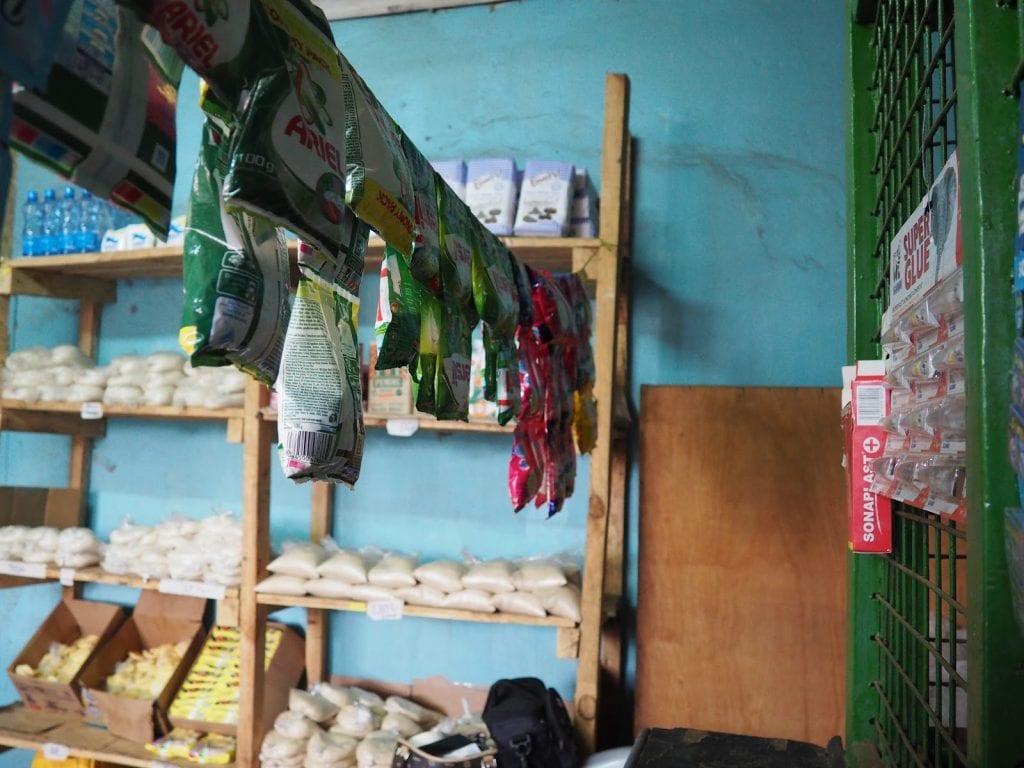4 Key Skills Every Small Shop Owner Needs
Through TechnoServe’s work with over 8,000 shopkeepers in more than half a dozen countries, we have identified four skills that all microretailers need in order to transform their businesses – and their lives.

Small retailers around the world are vital to local economies, selling $11 trillion worth of goods annually in developing countries. However, many of these microretailers struggle to run profitable businesses because they do not have the necessary information and skills. And, in many cases, its become even more difficult during the COVID-19 pandemic, which created a host of ongoing challenges for small business owners.
Examining the research and results from TechnoServe’s microretail programs over the years, we began to recognize common skills shopkeepers need to be successful across a range of geographies and sectors. Using this information, we developed a roadmap that lays out four capabilities that shop owners need in order to transform their businesses and the developing world.
View the full Microretailers’ Manual
Recordkeeping and Financial Management
The first step in microretailer training often involves helping shopkeepers understand their financial situation through basic recordkeeping. TechnoServe teaches shopkeepers how to separate household funds from business funds, evaluate decisions based on financial information, understand how much money the business is making or losing, and keep complete records of the business’s sales and costs. With this information, retailers can make more informed decisions that will have a positive impact on their business long term.
Charity Dangana runs a small retail shop outside Abuja, Nigeria, selling water and basic household items. Before the TechnoServe training, she struggled to make a living and run her shop effectively. “Before I just did business without keeping any records, I did not keep track of margins,” she recalls. Now, she is able to analyze the performance of her business and make better decisions about how to use her revenue.
Inventory Management
It can be complicated for shopkeepers to keep track of the flow of store inventory and stock. However, to maximize profits, shopkeepers need to anticipate seasonal changes in demand for products; regularly identify new suppliers; track the sales, stock, and margins of their goods; and understand who their customers and potential customers are.

Merchandising
The best inventory in the world won’t matter if a customer can’t find it. Visual merchandising is a powerful tool that can lead customers to the right products, entice them to buy, and create an excellent in-store experience. On the other hand, poor layout and atmosphere can discourage easy shopping, leading consumers to take their business elsewhere or reduce their purchases. TechnoServe teaches shopkeepers simple techniques, such as installing adequate lighting, ensuring the store is tidy and products are neatly arranged, and grouping similar types of products together.
Before I just did business without keeping any records, I did not keep track of margins.”
– Charity Dangana, shopkeeper outside Abuja, Nigeria
Customer Service and Promotion
Microretailers can achieve greater profits by building upon the promotion strategies offered by the brands they carry and applying their own unique knowledge of the community, customers, and store. TechnoServe teaches shopkeepers how to segment customers and target marketing to the most profitable ones; how to use “hook” products to bring in customers and increase sales; and how to conduct active price scans of local competitors to set the most attractive prices.
Focusing consistently on these skills – in addition to others based on the shopkeeper’s particular needs – has led over 8,000 small shop owners to improve their profits by an average of 30%, helping them better provide for their families and build greater long-term opportunities for themselves and their communities.




